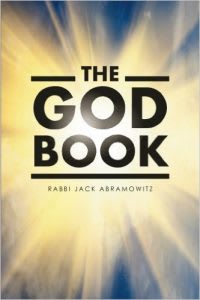14. Miracles and “Nothing New Under the Sun”
Last time, we concluded with a Talmudic dictum (Sanhedrin 97a) about the world lasting for 6,000 years, which the Rambam demonstrates should not be taken literally, as the quote continues that the world will then be a wasteland for 1,000 years - a clear indication that it must still exist! It must also be noted that this dictum is just a statement of one individual's opinion. There is another position that is universally acknowledged, based on Koheles 1:9. There, Solomon tells us that "there is nothing new under the sun," which the Sages understand to mean that there will not be any creation of a new reality. [II, 29]
We previously mentioned Isaiah 65:17, which says that God "will create new heavens and a new Earth." While the Rambam understands this verse as a metaphor to the effect that joy will replace sorrow, he acknowledges that some people do take it literally. Even these people agree with the dictum that "there is nothing new under the sun." Accordingly, they accept that if there are new heavens and a new Earth, they must have already been created. This is supported by the fact that, regarding the new heavens and new Earth, Isaiah 66:22 says that they "remain," not that they "will remain," indicating that they are already in existence.
The principle of "there is nothing new under the sun" only precludes a permanent change to to the natural laws of the universe. The heavenly bodies will always exist and forces like gravity and magnetism will always operate as they do now. Natural laws may, however, be temporarily suspended in the form of miracles. If God enabled Moses to turn the water of the Nile to blood, or if He allowed Aaron's rod to transform into a snake, these were isolated incidents. They did not change the fundamental nature of water, blood, wood or snakes. Instead, the universe carried on as it always had, its natural laws intact.
While the Rambam is content to consider miracles to be exceptions to the rules, he acknowledges that the Sages actually took things a step further: they considered miracles to be "pre-programmed" into the fabric of the universe. He refers to midrashim - particularly in Bereishis Rabbah and Midrash Koheles - where the Rabbis said things along the lines of, "When God created the universe, He decreed that when such-and-such does such-and-such thing, the result will be such-and-such." In such a case, Moses splitting the Red Sea would not be an exception to the laws of nature. Rather, the laws of nature would say, "Water freezes at 32 degrees Fahrenheit, it boils at 212 degrees Fahrenheit, and it splits when Moses holds his rod over the Red Sea." If anything, God sent the prophets to places and instructed them to do things that would trigger these pre-programmed events. The Rambam praises the one who stated this explanation of miracles.
The Midrash supports the "pre-programmed miracles" hypothesis by citing Exodus 14:27, "the sea returned to its strength when morning came," suggesting that this event was part of the natural order of things. It then goes on to say that this scenario applies not just to the splitting of the Red Sea but to all miracles. When God created the world, He decreed that the Red Sea should split for Moses, that the lions should not attack Daniel, that a big fish should spit out Jonah, etc.
Tying together the last few installments, we see that Judaism agrees with half of Aristotle's view of the universe. We differ in that Aristotle believed the universe always to have existed and we consider it to have been created - a position once dismissed by great thinkers but now accepted by modern science. We agree with Aristotle that, now that the universe is here, it will go on forever with the same natural laws, barring the rare exceptions that God may occasionally make in the form of miracles. Even these, however, may be considered natural laws, woven by God into the fabric of the universe at the moment of its creation.

